There is nothing worse than being sick while traveling, and many a travel-related illness can be avoided (or at least mitigated). Please, for the love of all things good, take it from me. I’ve been there.
The advice in this post has come from over a decade of full-time travel, often learning the hard way; lessons learned in seemingly innocuous places, as well as truly inhospitable environments. Here’s how I survived (at times, barely).
It’s all about prevention.
In this guide I lay out the exact process for staying healthy while traveling, and preventing nasty things from happening. Because when icky stuff strikes, your budget – as well as your trip – may well be blown.
So let’s make sure icky stuff doesn’t strike, shall we? Let’s get started.
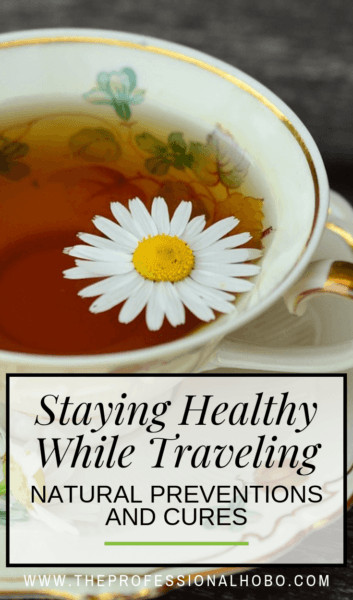
BASIC PREVENTION TIPS FOR STAYING HEALTHY WHILE TRAVELING
Let’s start with the core techniques for staying healthy while you’re gallivanting around the world:
PREVENTING GUT GRIEF
Intestinal maladies are the easiest to contract, and also to prevent. I’ve had it all. Travelers diarrhoea. Giardia. Parasites. Even heavy metal poisoning. Oh yeah.
Here’s how to prevent digestive and gut problems while traveling.
Drink Clean Water
Ensuring that you imbibe nothing but clean water actually sounds simpler than it is, especially if you care about the environment and thus don’t like polluting it further by drinking from disposable plastic bottles. (Please don’t do it, if it can be avoided….and it can.)
Here’s how to ensure your water consumption is healthy:
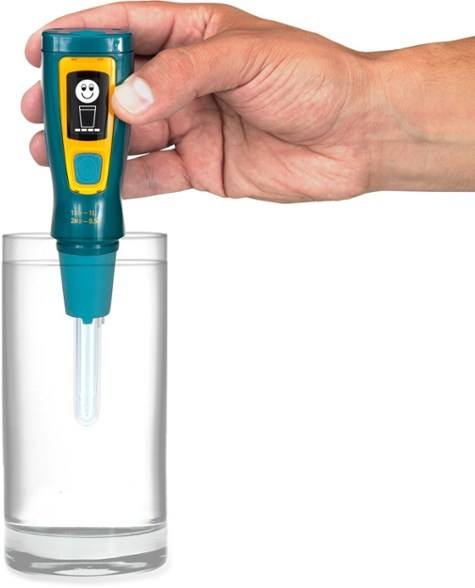
Use a SteriPEN.
I have the SteriPEN Ultra USB-rechargeable water purifier and I use it all the time, especially in countries where the water isn’t generally safe to drink.
Something to remember, however, is that the SteriPEN kills 99.9% of bacteria, viruses, and protozoa, but it doesn’t filter out ickies like particulates and heavy metals.
So if you’re filling up from a backcountry river or from the tap in a dodgy country (as I did all over Asia), ask around about the condition of the water. Consider a portable water filter if you want to get rid of absolutely everything.
Here are some various water sterilization and filtration tools I’ve tested out.
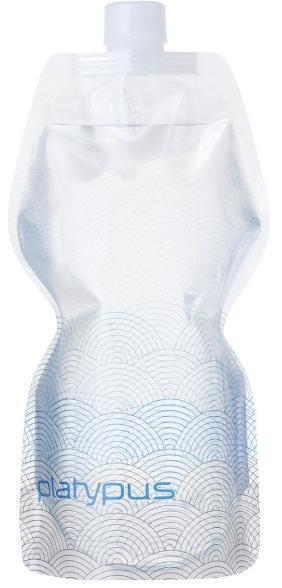
Carry a Reusable Water Bottle.
I swear by my collapsible water bottle; it’s ultralight and ultra-handy. I can also use it in conjunction with my SteriPEN. And, in countries where it’s unsafe to drink the tap water (even if I sterilize it), I refill my reusable bottle wherever possible; there are usually purified water coolers in hotels and some restaurants for just this purpose.
Hold the Ice.
When ordering drinks in developing countries, ask for no ice, and avoid blended beverages. Sure, that smoothie might look delightful, but do you know where the water to make that ice came from? If you’re not absolutely sure that it’s purified water, don’t risk it.
Eating Healthy While Traveling Abroad
A friend of mine couldn’t understand why she was terribly ill during and after her five-star trip to Mexico. “I ate nothing but salads!” she griped. Although fancy places that cater only to tourists are usually more attentive to hygienic food preparation, people still get sick all the time.
Whether or not you’re eating at five-star restaurants, here are a few simple culinary rules for eating healthy while traveling abroad. How to stay healthy on the road? Follow these tips – religiously.
If you Can’t Peel It or Boil It, Don’t Eat It.
Any fresh produce that has come in contact with (contaminated) water in the preparation (or worse yet, has not come in contact with water, as in it hasn’t been washed at all) is out. Yes, that rules out a huge amount of fresh produce. Veggies need to be cooked or peeled. Eat fruit selectively (for example, all berries are out; citrus, pineapple, and mango are okay because they’ve been peeled).
Select Restaurants Carefully.
Even if that pineapple has been peeled, did they cut it with a clean and dry knife? Because if they just rinsed the knife with contaminated tap water and used it wet on the pineapple, that pineapple is also now contaminated.
Many restaurants that have tourist clientele employ stricter protocols, since they don’t want to make customers ill and lose business. But be wary, and remember these rules if you are doing any of your own food prep on the road as well.
Eat Street Food at High-Turnover Places.
Not all street food is dirty; in fact, a lot of street food is cleaner than what you’ll get at a restaurant, since you can see the food being prepared. Choose vendors that prepare the food in front of you; you don’t want stuff that has been sitting around. The longer the lineup, the fresher (and better) the food likely is.
Wash Fresh Produce in Grapefruit Seed Extract.
Grapefruit seed extract has many natural health benefits; when I lived in South America, it was commonly used to disinfect fresh produce. Soaking fruit and vegetables in a bowl of water with just a few drops makes it possible to eat all that delightful fresh produce (like salads and berries) that is too risky to eat in restaurants.
Fend off Traveler’s Diarrhoea Before it Begins
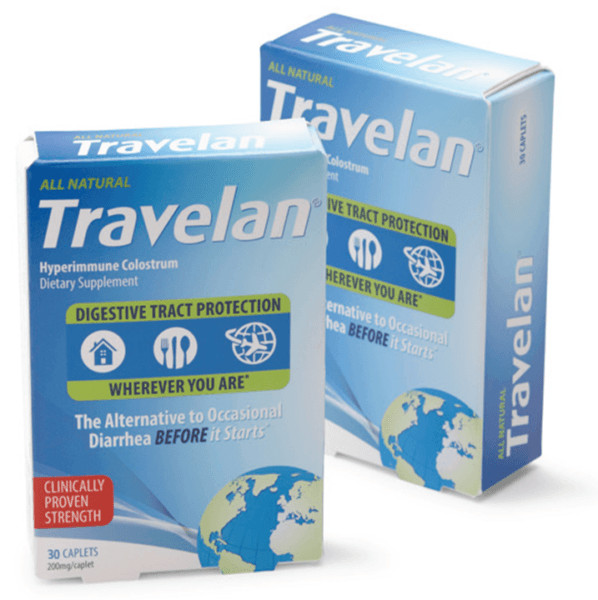
Careful as you may be, it’s virtually impossible to eliminate all exposure to contaminated water or food on the road. This is where Travelan comes in. It’s a clinically proven natural supplement that prevents diarrhoea from ruining your trip.
You take a capsule before each meal, and it works by supplying your gastrointestinal tract with naturally occurring antibodies and proteins that lay in wait and go to work if you consume food or water that contains diarrhoea-causing bacteria.
It’s approved by the Therapeutic Goods Administration (TGA) in Australia, and has passed rigorous US Army tests with flying colours.
I recommend Travelan pills if you’re going to a developing country and/or if you are sensitive to traveler’s diarrhoea. I plan to always have some on hand myself.
I searched around for some Travelan reviews, and most people seem pretty happy with it. The irony with a product like this is, it works when nothing happens (ie: you don’t get sick on your trip). Thus, preventatives in general don’t often get rave reviews. I laugh at reviews like “it did nothing”; if you didn’t get sick, then it quite possibly did a lot more than nothing!
Disclosure: I recently learned about Travelan, and I decided they have a great product for travelers and that I wanted to work with them. Travelan has generously sponsored this post. That said, they did not tell me what to write, nor is my opinion of their product affected by their sponsorship.
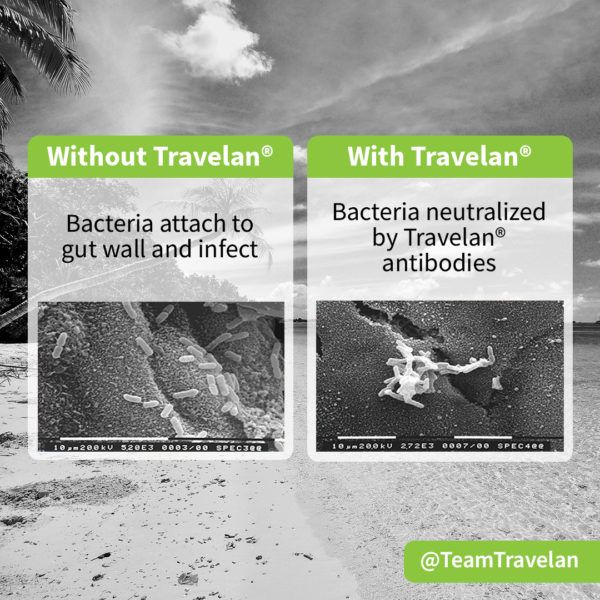
HOW TO STAY HEALTHY WHILE TRAVELING: OTHER BASIC TIPS
But it’s not all about the gut. Here are some crucial overall health tips whether traveling to the other side of the world, or to the office in the morning, these prevention tips will keep you out of the doctor’s office.
Get Some Sleep
Between jet lag, long bumpy overnight bus rides, and a complete lack of routine on the road, sleep is what suffers the most, and it compromises our immune systems when we travel.
Do whatever you have to do to get a good night’s rest; I always have an eye mask and ear plugs handy, for starters. Many travelers swear by the use of melatonin, especially as a jet lag recovery aid. I’m also a fan of magnesium.
Drink Water
It’s so important to drink water – not only for basic hydration (especially in hot climates), but also because water itself is very healing, flushing out unhealthy bacteria and toxins.
But, this is a double-edged sword, because if the water isn’t clean, it will do more damage than good. Remember the tips above to ensure your water is clean.
Stay Fit
Some people gain weight when they travel (due to eating richer foods and not having a gym to go to), while others lose weight on the road (by walking everywhere for example). Regular exercise will help you in staying healthy while traveling; and staying fit doesn’t need to be complicated.
Every single morning I do something to stay fit on the road, as soon as I wake up. Some mornings I do yoga and basic stretches. Other mornings I pull out my smartphone and use a free workout app like Freeletics, or the personal trainer app associated with my FitBit (a super-cool travel aid to help ensure you’re getting enough exercise, monitor your sleep and heart rate, and more).
I also own exercise resistance bands which are light and easy to travel with and enable me to build/maintain muscle without using gym weights.
Lastly, a great way to stay fit while traveling is to walk as much as possible; something that’s also great for observing and interacting with your local environment. When I was in Bali, I was one of the few people who didn’t have a scooter. And although on the whole not having wheels was a pain in Bali, it was also great because I got a ton of exercise.
Basic Sanitation Tips
It’s important to be vigilant about bacteria and viruses in any public place. But it’s especially important in public places with high concentrations of travelers, given that all our immune systems are compromised.
According to a recent study, self check-in screens at the airport have about a gazillion times more bacteria (the bad kind) than the average toilet seat.
If that’s not horrifying enough, consider how often your airplane seat armrests, tray table, and entertainment screen is cleaned. Apparently if you’re lucky, it’s once a month. With airlines flying multiple times per day, consider how many travelers before you have picked their nose in your very seat since it has last been cleaned.
Grossed out yet? You should be. Here are some ways to keep things sanitized while you’re traveling:
Carry Disinfectant Wipes.
Use them when you fly or take the train/bus to wipe down your armrests and tray table.
For a natural homemade version of disinfectant wipes, soak paper towels in a mixture of equal parts vinegar and water, with a few drops of essential oil. You can find all kinds of different recipes online, including some that suggest the above ingredients plus rubbing alcohol and a bit of dish soap. Vinegar is the most important ingredient here though, so if you need to make them on the fly, just use vinegar and water.
Wash Your Hands and/or Use Hand-Sanitizer.
Especially after you use self check-in (or similar) kiosks!
Be Aware of Everything You Touch.
When in public, be conscious of what you touch. Handrails, door knobs, even money; it all has cooties. It can’t be avoided, so don’t freak out every time you touch something in public; what’s important is that you don’t touch your face or your food until you’ve washed/sanitized your hands.
Get a Pillow-Shield.
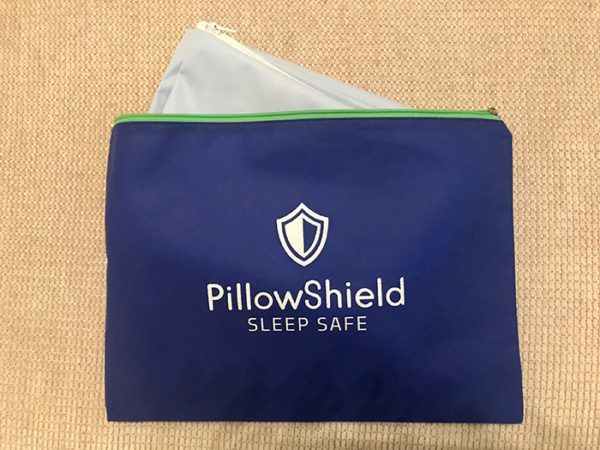
Disgustor alert: Scientists have found that up to 1/3 of the weight of a hotel pillow is made up of bacteria, dead skin, fungi, dust mites, and their faeces. (National Sleep Foundation, May 2015; American Academy of Sleep Medicine, January 2017). Hotel pillows are not often (if ever) washed, and most are kept in circulation for several years. That means up to 2,000 people may have used that pillow before you. That same pillow you’re about to bury your face in while you inhale deeply for 6-8 hours. And a freshly washed hotel pillow case won’t shield us from the mold and infectious germs and bacteria that could be residing in the pillow, including MRSA, E. Coli, the flu, chicken pox, and even leprosy.
Enter: PillowShield. It was developed in cooperation with healthcare professionals, using a patented fabric, made in America, that has been infused with an anti-microbial agent that inhibits bacterial and fungal growth on its surface. It’s also non-allergenic, and because of these properties, some hospitals are now using this product to protect their patients.
Disclosure: I hadn’t heard about Pillow-Shield until they reached out to me, offering to sponsor this post. I accepted, and now that I know what I know about hotel/hostel/AirBnB pillows, I can’t “unknow” this. So personally, I hope to get myself a PillowShield, stat. They’re not cheap, but they’re designed to last, and I think it’s a reasonable measure to take to stay healthy while traveling.
PREVENTING DISEASE
I can’t possibly cover how to prevent every single disease you can contract on the road, but here are a few preventative tactics that will tackle the ones you’re at highest risk for while traveling.
Ward Off Mosquitoes
I’ve suffered two mosquito-borne diseases: Dengue Fever and Chikungunya. Neither have vaccines or cures. And both are awful (life-threatening, even) to endure. I got off easy; there are even more serious diseases you can get from mosquitoes; diseases like malaria, yellow fever, and encephalitis.
While I’m a big fan of natural remedies and supplements, natural insect repellant isn’t on this list. When I spent a month in the jungles of Peru, I brought a horrendous concoction with 80% DEET (at the bidding of my jungle-experienced friend), and a lovely all-natural insect repellant which is what I actually planned to use (which my friend scoffed at).
He got the last laugh in on that one, when I was covered in pussy festering bites and finally lost my wits in a DEET-filled temper tantrum when termites took over my hut one day. (Read the whole story at A Month in the Jungle, Part 5: Journal Excerpts). From that day forward, I used DEET.
Protect Yourself From STDs
Far be it for me to tell you to be celibate on the road; when love (or even lust) strikes, you gotta answer to the call. (See also: My Sordid Attempts at Finding Love on the Road)
But don’t expect lovers abroad to all be tested for STDs, nor necessarily even honest with you about being clean (especially in the throes of potential passion). And beware: your partner might carry an STD and not know it because they don’t show symptoms…but you will.
Use the same precautions in bed while traveling that you would at home. And then some.
Check out Gynopedia, which is an open-source resource for sexual and reproductive health around the world.
Vaccinations
Vaccinations can prevent diseases that you may be exposed to on the road, such as Yellow Fever, Typhoid, Japanese Encephalitis, Hepatitis, and even Rabies and Tetanus. But not everybody is a fan of vaccines. I’ll just leave it at that. For more information, read Travel Vaccinations: Yes or No?
NATURAL SUPPLEMENTS FOR TRAVELERS (My Healthy Travel Kit)
Here is a selection of natural supplements for travelers; I travel with and use these for prevention and/or treatment:
Travel Probiotics
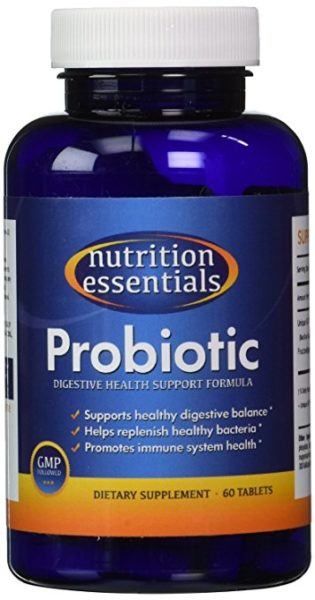
Studies are increasingly showing that bacterial gut health is way more important than we ever thought; I can attest to it; after years of living in South America and Asia and ignoring my gut, my whole body rebelled (which inspired my starvation detox in Koh Phangan).
It’s even suggested that after taking antibiotics (which strips your body of all bacteria, good and bad), your gut can take up to four years to return to normal. Probiotics will help this process along dramatically.
Probiotics are the “good bacteria” that fend off digestive issues, and some people say they can also keep you regular, and prevent/cure intestinal illness, colon issues, IBS, and even skin infections.
What are the best probiotics for traveling? There is a huge variation in quality amongst travel probiotics. Some require refrigeration, and for a while these were considered the only truly effective ones. Don’t know how to keep probiotics cold while traveling? Join the club. The good news is that more recent studies have shown that if the probiotic is so unstable that it requires refrigeration, then it won’t make it through your (unrefrigerated) body to your small intestine to do its job.
Either way, without a fridge in my carry-on, the best travel probiotic is the shelf-stable kind, with the highest CFU count I can find (like these ones).
What is the best probiotic for travelers diarrhea? I’m not sure there’s a specific probiotic for travelers diarrhea. Personally, I take probiotics before travel (and throughout my trip) as a preventative. And it’s worth noting that pretty much every time I have suffered from travelers diarrhea, I wasn’t taking probiotics at the time.
Travelan vs Probiotics: You might be wondering if there are any differences between Travelan and probiotics. The active ingredient in Travelan is hyperimmune bovine colostrum powder enriched with E.Coli antibodies. Thus, it’s not a probiotic, but it works in similar ways regarding the prevention of travelers diarrhea.
I take daily probiotics when traveling, in addition to eating yogurt and other foods/drinks with active bacterial cultures.
Turmeric
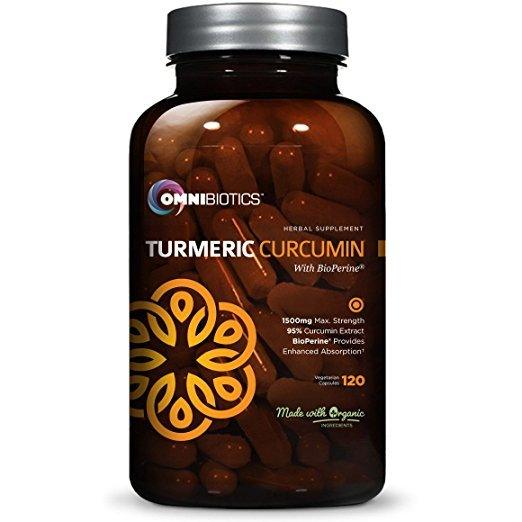
Turmeric is my #1 preventative and curative natural remedy. It’s the bright yellow spice commonly found in curries. It also happens to be one of nature’s strongest antibiotics, anti-inflammatories (known to relieve joint pain), and anti-oxidants. And unlike prescription antibiotics, turmeric won’t strip your gut of the good bacteria; in fact, it improves digestion.
You can travel with (and take) turmeric in a few ways:
Fresh. Fresh turmeric looks similar to ginger (on the outside; inside it’s bright orange). Adding it daily to your food (if you can handle the gentle but distinct taste, add it raw to a smoothie) will keep you healthy (and regular).
Powdered. Powdered turmeric is easy to travel with, multi-purposeful, and can be found at grocery stores around the world. When I’m feeling unwell (or like I’m coming down with something), I dissolve a 1/4 teaspoon of turmeric powder in a bit of water and gulp it down twice daily. This is not prescriptive advice! It’s just what works for me, and I don’t believe you can overdose on turmeric. You can also make turmeric tea (recipes can be found online) or a potent turmeric/honey mixture (recipe here).
Turmeric Capsules. While I actually enjoy the taste of turmeric, not everybody does, and some people can’t abide chugging turmeric-infused water. In this case, an easy (and potent) way to enjoy the health benefits is to take turmeric in capsule form. Some supplements include black pepper and curcumin for better absorption and additional anti-oxidizing “zing”.
Oil of Oregano (Oregano Oil)
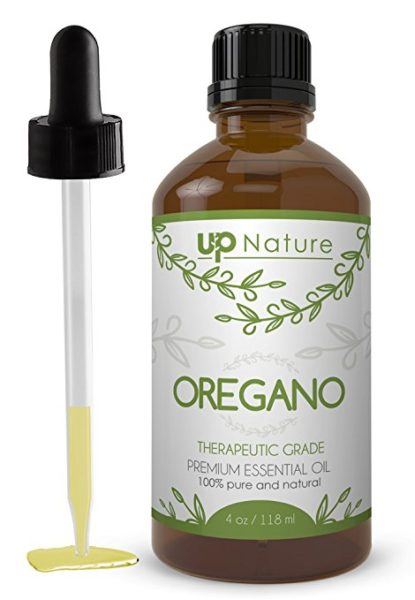
Eating spaghetti sauce won’t help you with the flu, but oil of oregano can. It’s an immune-booster, natural antibiotic, anti-bacterial, and fights infections. Here are 9 things oregano oil can do. Along with turmeric, oregano oil is my remedy when I feel ill. It’s best to catch it early; as soon as I feel something coming on, I take oil of oregano and I can often avert the worst of the illness.
Now, Oregano oil is very strong, and should be taken according to the directions. If you feel nauseous, then ease up. Here are some common questions:
Does oregano oil kill good bacteria? The active ingredient (carvacrol) is known to be effective bacteria fighter – among many other benefits. It’s considered an alternative to anti-biotics, however some studies show that as a “broad spectrum antibacterial agent”, that means it take the good guys down as well. That said, there’s a lot of contradiction out there. Either way, I take probiotics while traveling, so that helps keep the populating my gut with the good guys.
Can I take oil of oregano for travelers diarrhea? Travelers diarrhea actually has many different culprits, and while oil of oregano can help with some of them, it won’t necessarily help with all of them.
Can you overdose on oregano oil? Again, studies differ. Some say oregano oil is for only for short-term use (two weeks or less); others are experimenting with treatments spanning many months. If taken internally, it can be hard on the digestive system, and using it topically without diluting it can cause serious skin irritations. I recommend you read up on it and decide for yourself.
Can I take turmeric and oregano oil together? Surprise, surprise: studies differ. One study puts turmeric in the anticoagulants department (and it’s not supposed to be good with those). But then, you can find a whole bunch of supplements that combine oregano oil with turmeric, citing their synergistic properties.
You can take oil of oregano in tincture/oil form, or for those who object to the very strong taste, you can take oil of oregano capsules.
Multi-Vitamins
I take a lot of different vitamins and natural supplements that are customized for my specific body type and condition. What I take and what you might need will probably differ; but at the very least I suggest taking a multi-vitamin to help keep your internal systems in balance and protected against the compromising effects (and varying diets) of travel.
Activated Charcoal for Travel
I haven’t taken activated charcoal while traveling, but I’ve met enough travelers for whom it’s their first line of defence, that I’d be remiss not to mention it here (and perhaps get a bottle for my next trip). Also, I’ve noticed that because of its detoxifying properties, charcoal in general is now in a lot of products from soaps and face wash to toothpaste and even toothbrush bristles.
The idea behind activated charcoal is that it binds with toxins and helps to flush them out of your body. While it has many applications, the primary benefit of charcoal pills for travel is to counteract the ill effects (ie: gas, bloating, stomach upset) from eating too much food/bad food/over-processed food.
Because of how it works, be sure to take charcoal tablets for travel separate (at least two hours apart) from other supplements or medications, otherwise you may decrease the efficacy of the other stuff you’re taking.
It’s not super backed-up by science, but I know lots of travelers who take activated charcoal while traveling as a cure-all of sorts. It’s generally considered safe to use, with few if any side effects. They’re also very inexpensive. Check them out here.
STAYING HEALTHY ON THE ROAD: MY TRAVEL MEDICAL KIT
I carry a custom travel medical kit with me, everywhere I go. Most of the contents are over-the-counter medicines that are easy to get/refill anywhere in the world. I try to buy in blister pack form (as opposed to in bottles); I take the blister packs out of their cardboard packaging and they travel very well all together in a ziploc bag.
This is what’s in my medical kit (in addition to the natural supplements mentioned above):
Painkiller/Fever Reducer – For headaches, muscle aches/pains, general pain management, and fever reduction. (I also carry special period pain medication and migraine medication).
Anti-histamine/Anti-allergy medication – For seasonal and pet allergies. I stay in people’s homes all the time, and I never know when I’m going to have a reaction to their pets.
Electrolytes – These handy tabs are essential for replenishing fluids during/after having diarrhoea, after a hot sweaty hike/workout, or even after a night of too much alcohol.
Antibiotic Ointment – I’ve had bug bites fester and small scratches and cuts become infected; something that’s common in humid climates and/or developing countries. Now I prevent that from happening with antibiotic ointment.
Pharmacy Tip
Did you know that pharmacists are incredibly knowledgeable, and that their education is almost as rigorous and lengthy as that of a medical doctor? In fact, before making an appointment with a doctor, I always consult with the local pharmacist; it’s free, and the advice is usually spot-on.
Not only that, but in lots of countries, you can get medicines over-the-counter in the pharmacy simply by discussing your symptoms with the pharmacist; medicines that are often restricted to prescriptions in North America.
I stock up on special high-quality migraine medication, period pain pills, medicated creams, and even antibiotics when I’m in these countries, and I store them as part of my travel medical kit.
Got a Weird Skin Thing? Here’s What to Do.
Goodness knows, over the years I’ve had a ton of weird skin things. From heat rashes, to bug bites, to allergic reactions and more, skin disturbances can range from mild to severe, and non-serious to life-threatening.
Problem is, when you’re off in the boonies somewhere you don’t speak the language, how do you know?
When I was in Australia, I got 37 spider bites in one fateful night. They looked like they were healing up nicely, until two weeks later when they exploded (literally – it was gross). I asked a pharmacist to look at the carnage; they told me I needed to go to the hospital.
I might have been able to avoid that hospital trip if I had known about Aysa.
Aysa is a free app that is built using AI and the expertise of over 47,000 physicians and nurses. It’s so simple – you just take a picture of your skin condition. The app asks a few follow up questions and gives you a list of possible conditions and treatments. While it’s not a substitute for an in-person medical diagnosis, it is a great preventative health tool that just may help you nip a skin problem in the bud – before it becomes serious.
Perhaps if I had used Aysa when I was in Australia, I’d have learned that some antibiotic cream would have prevented the all-out infection I ended up with.
Disclosure: Aysa has kindly sponsored this post. However the language and opinions are 100% my own. Sponsorships like these help me keep The Professional Hobo a free resource for my readers.
TRAVEL INSURANCE
Please don’t be that person who says “if something bad happens to me on the road, I’ll just use crowdfunding”. It reeks of entitlement and poor taste to expect your friends, family, and social media connections to bail you out because you couldn’t be bothered to help yourself in the first place.
Travel insurance won’t help you stay healthy, but it will help your finances stay healthy in the event of an illness or emergency abroad, especially if it’s serious and thus, expensive to treat.
From experience (including claims experience), I recommend World Nomads. They’re the most flexible for travel insurance, allowing you to apply for and renew it from abroad. Get a free quote here.
2021 Update: Depending on your country of residence, World Nomads may not cover COVID-related claims. My current insurance of choice is Safety Wing, because they cover COVID both from a medical as well as a trip cancellation perspective. Here’s more about the Best Travel Insurance For Long-Term Travelers.
Note: If you end up purchasing an insurance policy through the links here, or various products or supplements mentioned in this article, I will receive a small commission. This in no way affects your price, and helps me to keep The Professional Hobo going as a lifestyle travel resource. Thank you in advance for your support!
What are your best tips for staying healthy on the road?
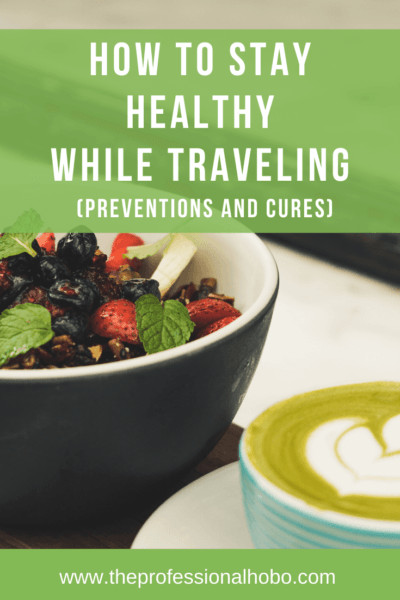

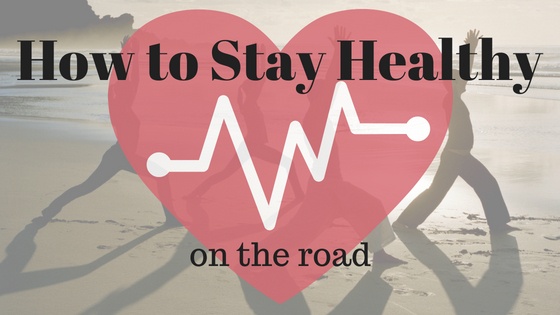

Hey Nora!
Those are some great tips. Keeping healthy is just so important. I have recently been into tea tree oil and loving it. Thanks for putting together all these super helpful suggestions with links! Here’s to health on the road! 🙂
Hey Tiff,
YES! Tea tree oil is another great one – very multi-purposeful. How do you use it mostly?
Thank you. I’m going to Guatemala for 9 days in August – traveling for the first time in 30 years. I’ll be taking a lot of the advice in this article…
Excellent, Mike! You’ll do well with these tips. Happy travels!
Traveling SE Asia, I took probiotics and activated charcoal (though much less than the recommended dose) and didn’t get sick. Vietnam has some major yogurt companies to avoid the need for probiotic pills. And I always filled up my water bottle at the hotels.
Hey Matt,
While I agree that filling up water bottles at hotels is great, unless I’m actually staying at the hotel in question, it’s a bit tricky, since I tend to drink 3-4 litres of water per day. That’s a lotta filling up! I did it in southern Thailand…my boyfriend and I would go in and fill up like eight bottles at a time. Normally I wouldn’t do that, but we had permission at this place.
And I haven’t used activated charcoal much, but I do know some people who swear by it. They take it en masse when they start to get sick and it usually helps them avert the worst of an illness and recover quickly.
Interesting that I should read a suggestion about which particular medical insurance you use when I was just about to write you to ask. I can’t say I could add anything to your post about keeping healthy on the road from my years of personal travel experience. I think you’ve about covered it. I’m fortunate in that I rarely if ever get sick on the road, and as you know, I’ve traveled to many extreme locations as well. None the less, I always prepare for the worst and I’ve used a particular Canadian medical insurance company for all of my years of traveling. I think it’s time to shop around though now that I’m retired and “wandering” full time. I’ll check out “World Nomads” to see how they compare. Thanks for the tip, and good job on another informative article.
Thanks, Steve!
And stay tuned: on the 30th, I’ll be publishing a full guide to travel insurance. Also, you probably know that as a Canadian from Ontario, if you’re absent from the province for more than 6 months you can lose OHIP coverage, which makes you ineligible for regular travel insurance. In that case, you’ll need expat insurance….and just your luck – I’m publishing a post about THAT next week. 😉
‘Yes’ to all your tips , Oregano oil is a real lifesaver , I also use it along with vitamin C to help combat toxicity of aircraft travel ,, I would add two more tips , carry a mosquito net , & , this ones a BIG one be aware of CIGUATERA & the areas where it’s prevalent , contracting this condition can change your life & not for the better !
Hi Sally,
I started traveling with a mosquito-jacket, but found that I rarely used it, and in the places where I needed it most, it was too hot to wear it.
And most places that really require mosquito netting at night already have it – or nets can easily be acquired. It all depends on how much room you have in your suitcase. 😉
As for ciguatera….yes! I actually got a mild case of it in Hawaii, but it wasn’t serious so it was more amusing than debilitating. Why do you suggest extra caution against it? Do you have experience with it?
Hi Nora ,, I wish I could say my experience with Ciguatera was an amusing incident ,, there are a growing number of people affected by Chronic Ciguatera , many 20 yrs down the line still struggling .. For me , 6 years later & my life is altered considerably ,, it’s too long & complex a story to address in your comments (would bore people’s brains out) but I hope people will make themselves aware & take precautions ,, it is an extremely challenging & life limiting condition to contract in the chronic form ,, I wish I had known about it before ,, thanks for the blog Nora ,, hope You find your perfect home base soon ! ?
Hi Sally,
I’m so sorry that ciguatera has affected you so badly. Gosh! Thanks for helping to raise awareness around it. Take care!
I’m an acupuncturist and Chinese herbalist, and one of my more “weird” health tips is to keep your neck covered, especially in cooler climates, windy conditions and especially on planes. Just bring a scarf or sarong with you and bundle up if you’re going to be exposed to a draft.
I also recommend carrying thieves essential oil with you to dab on the back of your neck and wrists (like perfume) while traveling.
The herbs/supplements listed above are great, and I would also recommend Yin Qiao San, a very popular Chinese herbal formula that you take at the onset of a cold/flu to help ward or off, or at the very least, lessen the symptoms and get you over the bug faster.
Great tips, Nicole – thank you!